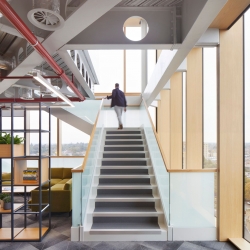May 30, 2023
Surge in employee turnover suggest that the ‘Great Resignation’ is still with us
 Over the past year, 55 percent of working adults have either started a new job or are looking for one, according to a report [registration] published by insurance firm YuLife. The poll suggests that a further 35 percent of working adults say it is likely they will consider changing jobs within the next year. The report claims that these findings suggest that the so-called Great Resignation may be far from over. The report also claims that high levels of stress characterize the modern workplace, and businesses which proactively address employees’ concerns around stress and invest in their wellbeing benefit from reduced churn and turnover. (more…)
Over the past year, 55 percent of working adults have either started a new job or are looking for one, according to a report [registration] published by insurance firm YuLife. The poll suggests that a further 35 percent of working adults say it is likely they will consider changing jobs within the next year. The report claims that these findings suggest that the so-called Great Resignation may be far from over. The report also claims that high levels of stress characterize the modern workplace, and businesses which proactively address employees’ concerns around stress and invest in their wellbeing benefit from reduced churn and turnover. (more…)























 Sustainable office design pioneer Casala has added to its portfolio of ground-breaking products with the launch of the
Sustainable office design pioneer Casala has added to its portfolio of ground-breaking products with the launch of the 









May 24, 2023
Hybrid working, work from anywhere and the evolution of the Third Place
by Chelsea Perino • Comment, Property, Workplace design